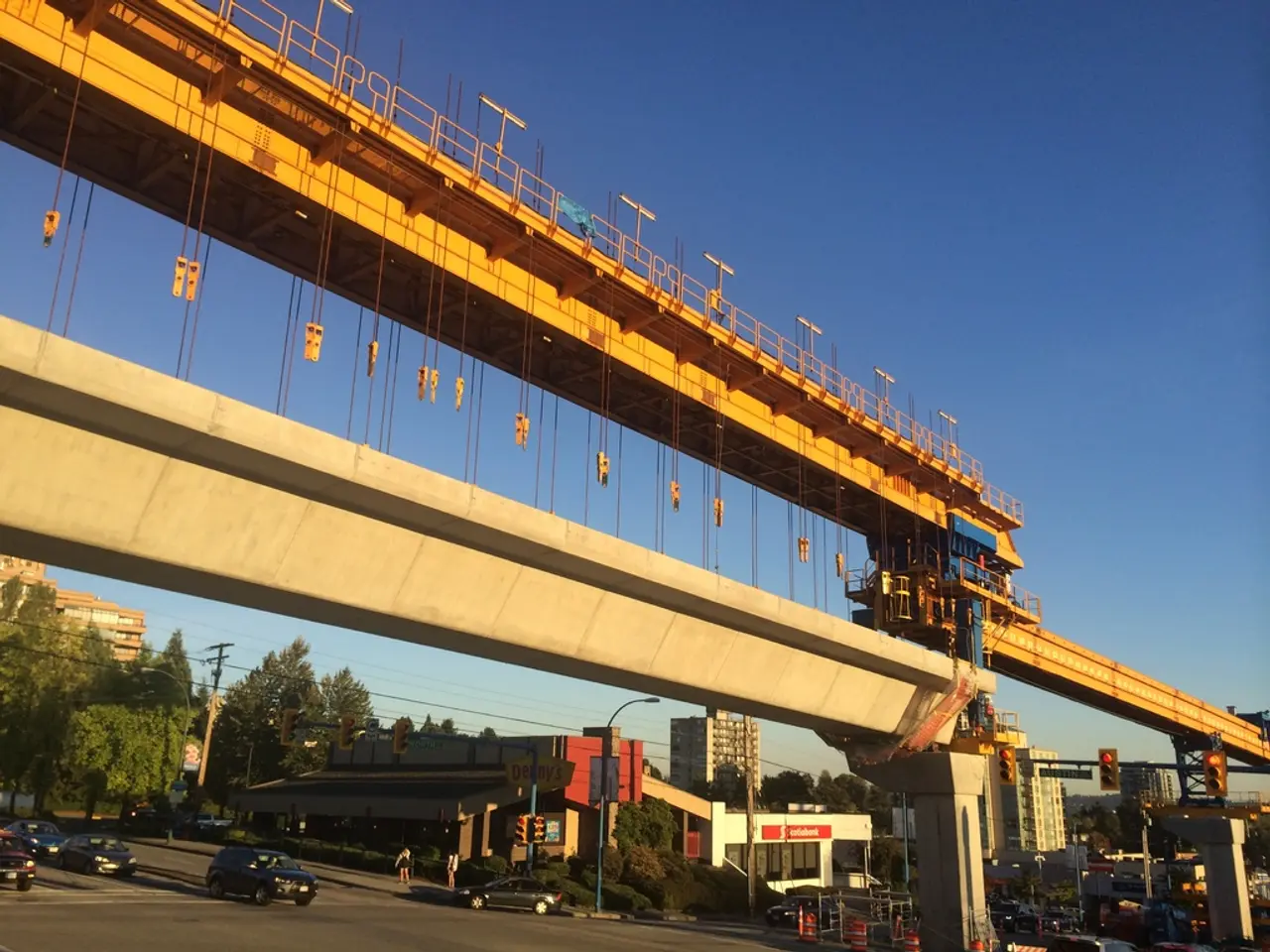Opposition to Road Construction Project Due to Increased Travel Difficulties
In the heart of Portugal, a heated debate has emerged concerning the Complementary Itinerary (IC) 25 de Abril Bridge expansion. Critics argue that the project, aimed at improving traffic flow, may inadvertently increase traffic congestion and fuel consumption.
The IC 20, connecting Almada to Costa da Caparica, recently underwent a significant expansion, widening the road from three to four lanes in each direction over a distance of 3.9 kilometres. The works, completed earlier this month after 20 months of labour, provide access to a tunnel and a viaduct for travelers from Costa da Caparica towards Lisbon. However, these improvements have sparked controversy, particularly for drivers intending to travel to Lisbon or other destinations on the south bank of the Tagus, other than Almada.
Aristides Teixeira, representing the Association of Users of the 25 de Abril Bridge, has expressed concerns about the new route on IC 20. Teixeira claims that the expansion has resulted in long lines during peak hours and increased fuel consumption. These concerns are not new, as they highlight the ongoing controversy surrounding the tolls on the 25 de Abril Bridge and the impact of the IC20 works on traffic and fuel consumption.
Bridge users have echoed Teixeira's sentiments, expressing concern that traffic in the area has become "worse" after the completion of the works on IC 20. The Association of Users of the 25 de Abril Bridge plans to discuss these issues in the Assembly of the Republic.
The controversy surrounding the IC 25 de Abril Bridge expansion reflects common tensions in urban infrastructure development. Critics argue that such expansions can potentially increase traffic congestion or induce more vehicle use, rather than alleviate it, which may consequently lead to higher fuel consumption and emissions. This debate is not unique to Portugal, as similar controversies are common in infrastructure projects across Europe.
The IC 25 de Abril Bridge, often referred to as "Lisbon's Red Giant," is a major infrastructure landmark in Lisbon. Expansion projects like the IC 25 de Abril Bridge aim to improve connectivity but often trigger debate regarding their actual long-term impact on congestion and environmental sustainability.
As the municipal elections approach, Teixeira's remarks may influence voting decisions related to the 25 de Abril Bridge and the IC20 works. If you need more detailed technical or official data on the traffic and fuel consumption impact, consulting environmental impact assessments or traffic studies related to this project would be necessary. The current publicly available information notes the controversy but does not elaborate on measured outcomes.
- The controversy surrounding the IC 25 de Abril Bridge expansion in Portugal is linked to concerns about increased traffic congestion and fuel consumption, as highlighted by Aristides Teixeira, a representative of the Association of Users of the 25 de Abril Bridge.
- These concerns echo the ongoing criticism towards the tolls on the 25 de Abril Bridge and the impact of the IC20 works on traffic and fuel consumption.
- The unfolding debate is a common tension in urban infrastructure development and is not unique to Portugal, as similar controversies are prevalent in infrastructure projects across Europe.
- The ongoing debate, set against the backdrop of municipal elections, may influence voting decisions related to the 25 de Abril Bridge and the IC20 works. For a more detailed analysis, consulting environmental impact assessments or traffic studies related to this project would be prudent.




